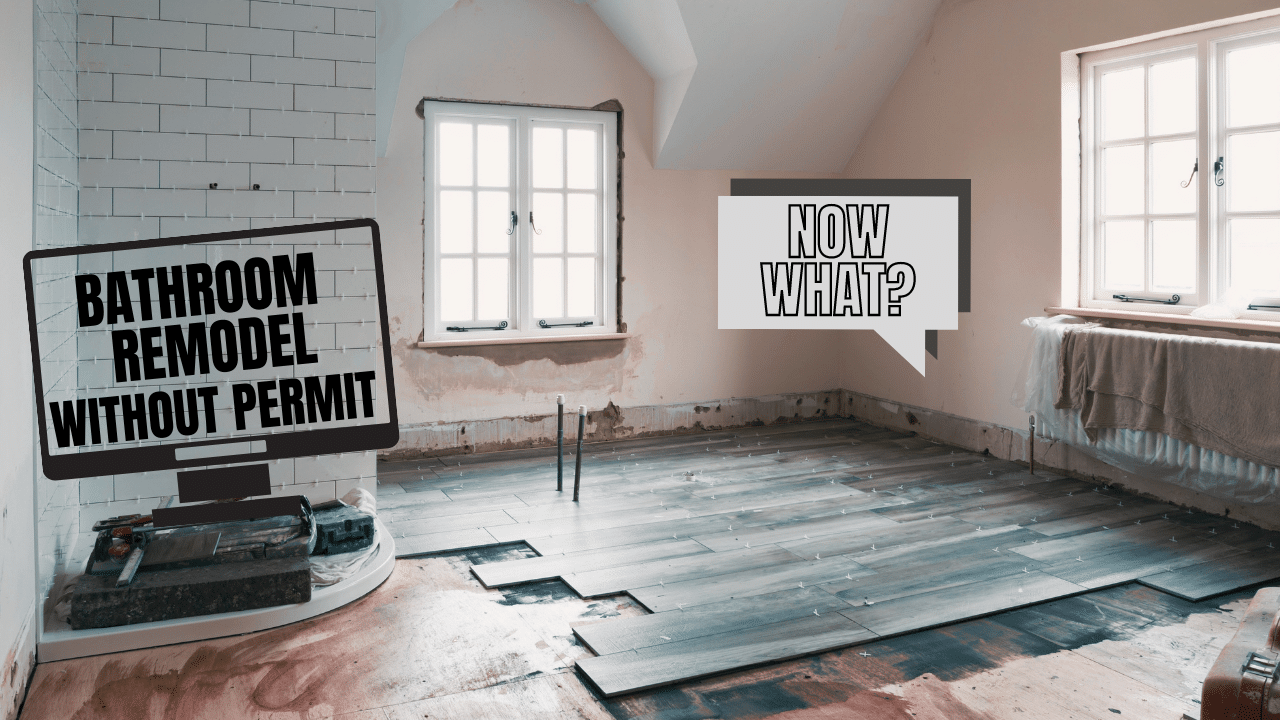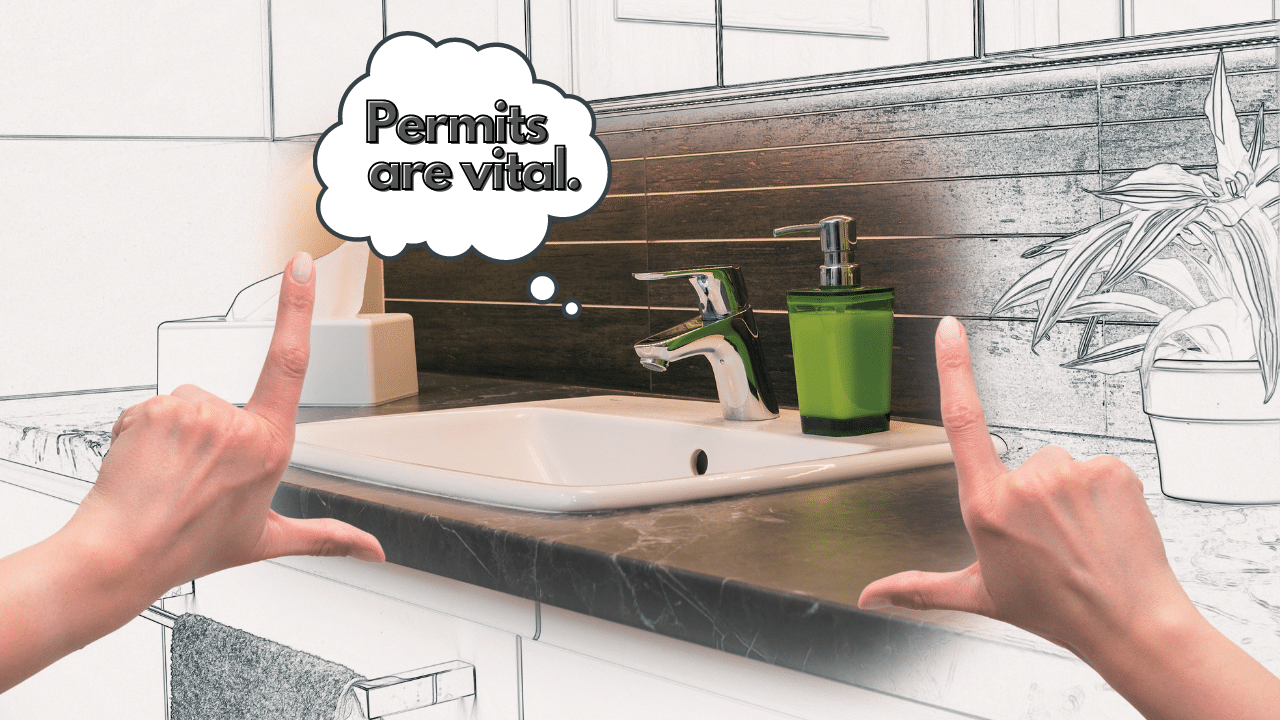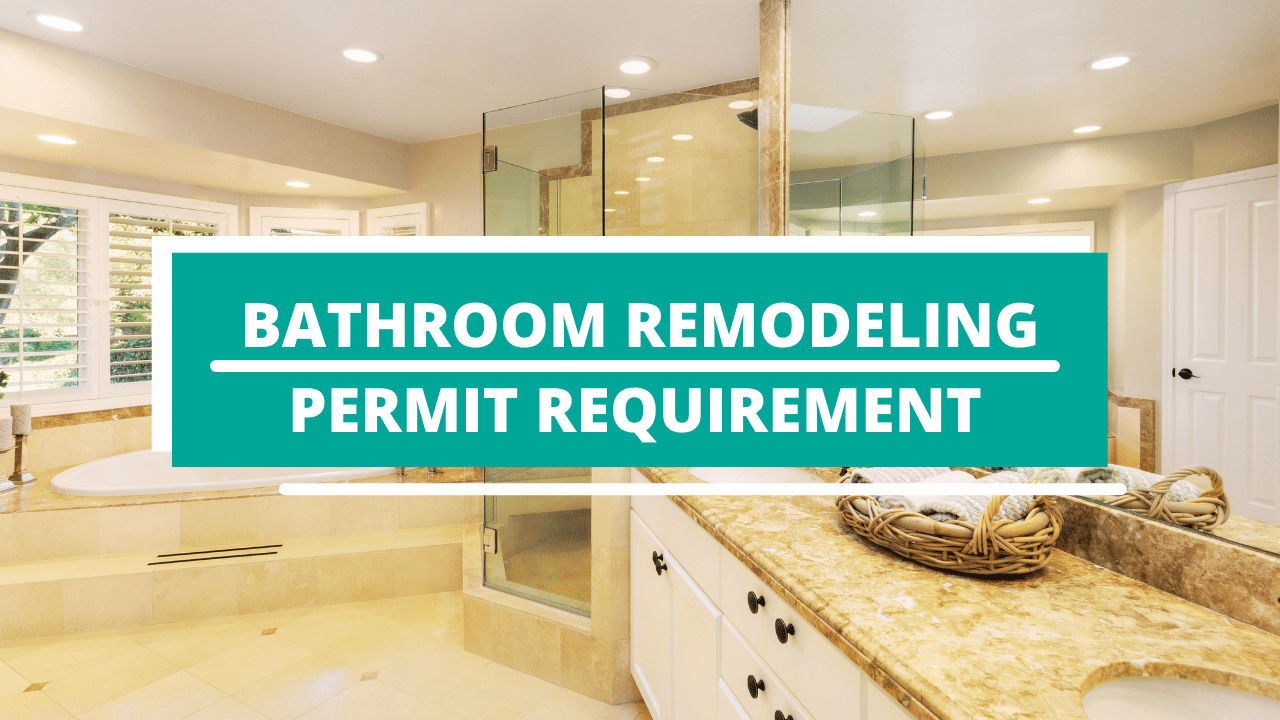It's wonderful to consider a big change to your home, like a new remodeling of your bathroom. But in addition to pricing, what permits might be needed and how much it will cost you are some of the issues involved in your restructuring strategies.
Bathroom Remodeling: Do I need Permit for that?
Few cities charge 1% of the entire budget for permits for the project. The solution, if you need a permit or not, is that permitting requirements change from city to city. The answer is: When it comes to house remodel permits, there are no federal/state standards.
So, your homework is worth doing. Most remodeling projects in bathrooms will include electrical and plumbing upgrades and will require a permit. You must check with the city to determine what permits are necessary if you are doing a remodeling of your DIY bath. They'll know what permits the project needs if you're hiring a licensed contractor to remodel the bathroom. There are a few permissions available immediately depending on the project, but some other permits need the bathroom plans to be inspected.

It is necessary to get the appropriate permits, particularly if your house is to be sold. According to the National Association of Realtors, it can prevent the sale of a house if you do not acquire the licenses at the time of construction. Unable to get the permits, various problems might arise, such as work stoppages, additional fees, job replacement, and subsequently complicated property sales. (Related: Bathroom Remodel Without Permit... Now What?)
The homeowner is responsible for ensuring that the project has the necessary permits. There might be inspections throughout the process, depending on the extent of your work. However, the most important thing most of the time is the last inspection.
This final inspection is to ensure all the inspectors have physically attended the project, examined all work personally, and initially complied with the permit to track progress in the inspection process by the homeowner and the team. For several reasons, this last check is crucial. This will help to let your insurance provider know about improvements, analyze the value of the home, and show that all your work on your house followed local codes.
Home Remodeling that Requires Permit
Bathroom Remodeling that does not Require Permit
Since this is their expertise, your renovator must manage all permits. You are legally responsible for obtaining the building permit, although it is usual and appropriate to engage a renovator. For the restructuring to be authorized, drawings and plans will be needed. The timing is based on your strategy and what investigation is required. If you require permits, your contractor may confirm that for you, so deal with a respectable organization or individual. Failure to get the permits before renovations will be unfavorable and you will be charged with fines when the municipality checks the property.
In addition to your local municipality's problems, they might refuse your claim for not having the proper permits when you file an insurance claim.
You will be liable for the repair before you can sell your home, should you decide to sell your home and an inspection takes place, and it is determined that your house structure does not conform with the regulatory requirements.
How Much does a Permit Cost?
The cost of the permit is dependent on the purpose of the permit. However, the price of this permit is minimal compared to what you’ll pay if you don’t have a permit. To make sure that you are covered legally for the job, you must have a clear list of renovations in mind before the remodeling.
Take some time to check your strategies to know if a permit is required or not:
Getting Permits from a Contractor's Point of View
Permits are great since they ensure that your project is safely constructed and coded. Listed below are the things you should know about obtaining bathroom permits from the contractor's perspective:
- 1The time permitted might be long. In certain countries, a bathroom remodeling permit may take up to six weeks. It's not possible, but it can. You will need an over-the-counter permit sometimes if you do not have a single trade (electrical) permit.
- 2The bathroom renovation process takes longer to complete, as you will have to stop for inspections. It's not a long period, but the city imposes its routines.
- 3Permits increase your remodeling costs because you can not avoid building needs.
- 4Although your contractor might not like permits, this is a vital issue and the drawing of permits is recommended.
- 5Determine who will be paying for the permit. In general, the construction company or remodeling team coordinates the permits, but the cost of the permits is the homeowner's responsibility. All remodeling contractors are different, but make sure that while choosing the contractor, you explain that.

Conclusion
Permits makes you or your contractors responsible for a job well done and ensures that your project will last for years to come, whether you live in it yourself or pass it on to the buyer.

